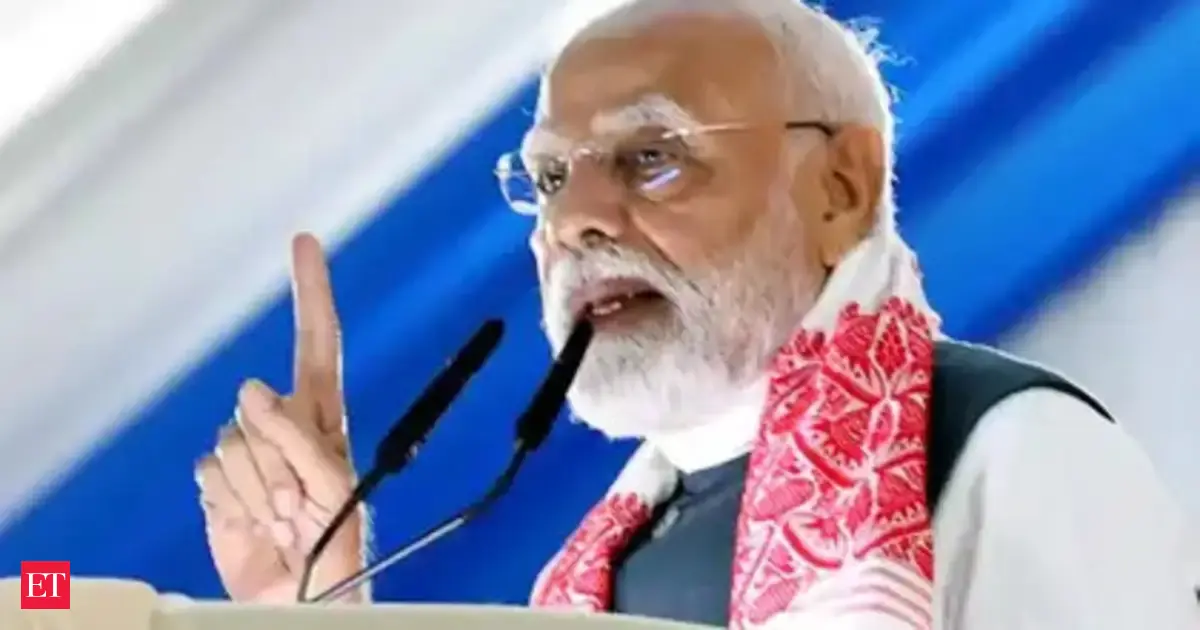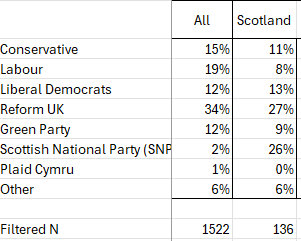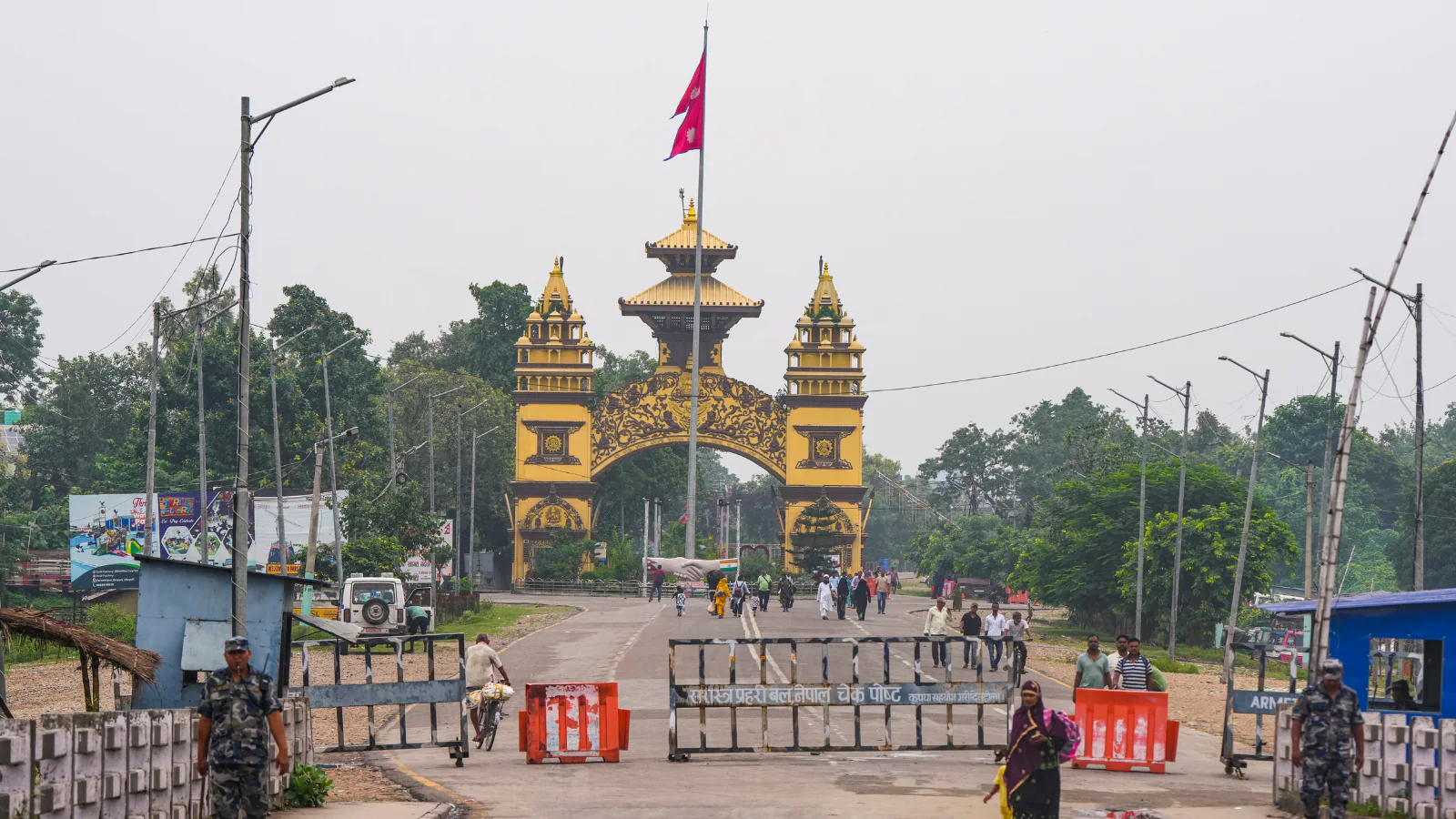By Rakesh Mohan Chaturvedi
Copyright indiatimes

Prime Minister Narendra Modi underscored the significance of the goods and services tax (GST) overhaul kicking in on Monday, dubbing the move that coincides with the start of Navratri as a “bachat utsav” (savings festival) that will help the neo-middle class, youth, women and MSMEs, among others.The income tax relief given earlier and this new regime will result in savings of over Rs 2.5 lakh crore for the people, he maintained.Modi reiterated that the revamp will accelerate India’s growth story and make the country more self-reliant by promoting swadeshi goods. In an address to the nation on Sunday, the Prime Minister said the country was earlier plagued by a plethora of taxes that made business difficult and movement of goods cumbersome. GST, which was rolled out in July 2017, was the first step in cutting red tape and now, the time had come for the next set of policy changes, he said.Four tax slabs have been cut down to two — 5% and 18% —bringing down the price of essential items. Sin goods will be taxed at 40%. “With sunrise on September 22, the next-generation GST reforms will come into effect. The GST savings festival is going to start. A new wave of GST benefits will come to every citizen. With lower GST, it will be easier for citizens to fulfill their dreams,” Modi said.Live Events He coined a new maxim, “Naagrik devo bhava” (citizen is god). This is along the lines of the proverb atithi devo bhava (guest/customer is god). The Prime Minister stressed that the essence of serving people was reflected in the changes.Modi asserted that the poor, middle class, neo-middle class, youth, farmers, women, shopkeepers, traders and entrepreneurs will be among the major beneficiaries of these policy changes. “I congratulate and extend my good wishes to the people. These reforms will accelerate India’s growth story. They will simplify business operations and make investments more lucrative,” he said.The Prime Minister also appealed to the states to become active participants in this endeavour by joining the Atmanirbhar Bharat campaign and the promotion of swadeshi (locally made) goods. They should help in creating the environment for investments in production in their state, he said. “When the nation and states work together, the dream of Atmanirbhar Bharat will be fulfilled,” the PM said. Modi emphasised domestic manufacturing and making the country self-reliant. He also urged people to buy swadeshiproducts. Recalling earlier years when citizens and businessmen were “entangled in a web of taxes,” such as Octroi, entry tax, sales tax, excise, value added tax and service tax, the Prime Minister said the burden had to be borne by consumers. While GST made things easier, the revamp will make the framework even simpler. Modi referred to an article published in 2014 in an international business paper that said a French company found it more cost-effective to send parts meant for transportation from Bengaluru to Hyderabad — a distance of 570 km — via Europe due to the number of taxes. He also sought to hold states equally responsible for some of the issues related to the form in which GST was envisaged in 2017, saying the reforms were implemented after “extensive consultations” with all stakeholders, including state governments. Such a monumental tax reform could be enforced only after bringing all states on board, he said. “The dream of one nation-one tax was realised through the joint effort of the Centre and the states. The country was liberated from the maze of multiple taxes,” Modi said.The Prime Minister reiterated that in the last 11 years, 250 million Indians had been lifted out of poverty. The government had given relief to the middle class by making income up to Rs 12 lakh per annum tax free earlier this year. Close on the heels of this, GST 2.0 is being implemented now. “This double bonanza will benefit the middle class and the neo-middle class, be it building a home or buying a television or a fridge or purchasing a scooter, bike or car,” Modi said, adding that even travel will become cheaper as hotel tariffs will drop. The Prime Minister highlighted the role of micro, small and medium enterprises in making these measures a success. “What the nation needs and what can be produced in India should be manufactured within the country. India will become developed through self-reliance… Let us buy products made in India,” Modi said. CII president Rajiv Memani termed the PM’s address a landmark for India’s growth path. “Reduction of taxes on essential and daily-use products will enhance disposable incomes for households and stimulate domestic demand,” he said. “These reforms will significantly boost domestic manufacturing and demand for Indian-made products, giving fresh momentum to the swadeshi movement.” Memani said the industry is poised to become more selfreliant and globally competitive, accelerating India’s journey towards Viksit Bharat.Add as a Reliable and Trusted News Source Add Now!
(You can now subscribe to our Economic Times WhatsApp channel)
Read More News onPM Modi swadeshi goodsAtmanirbhar BharatGST reformsdomestic manufacturingPM Modi speechGST Bachat UtsavViksit Bharatsavings festival
(Catch all the Business News, Breaking News, Budget 2025 Events and Latest News Updates on The Economic Times.) Subscribe to The Economic Times Prime and read the ET ePaper online….moreless
(You can now subscribe to our Economic Times WhatsApp channel)Read More News onPM Modi swadeshi goodsAtmanirbhar BharatGST reformsdomestic manufacturingPM Modi speechGST Bachat UtsavViksit Bharatsavings festival(Catch all the Business News, Breaking News, Budget 2025 Events and Latest News Updates on The Economic Times.) Subscribe to The Economic Times Prime and read the ET ePaper online….moreless
Prime ExclusivesInvestment IdeasStock Report PlusePaperWealth Edition123View all Stories



